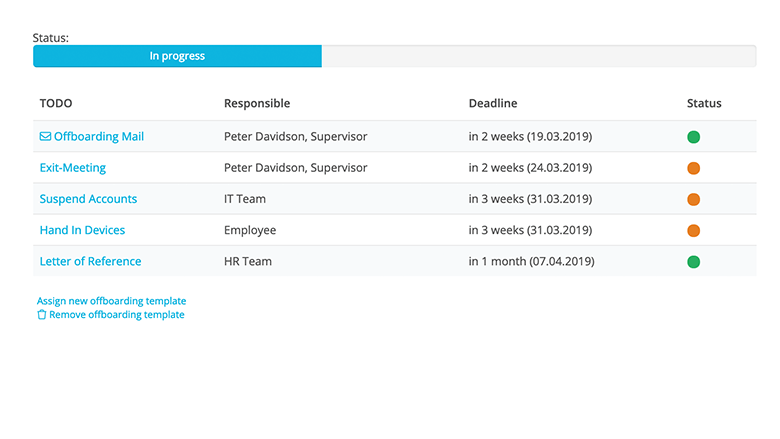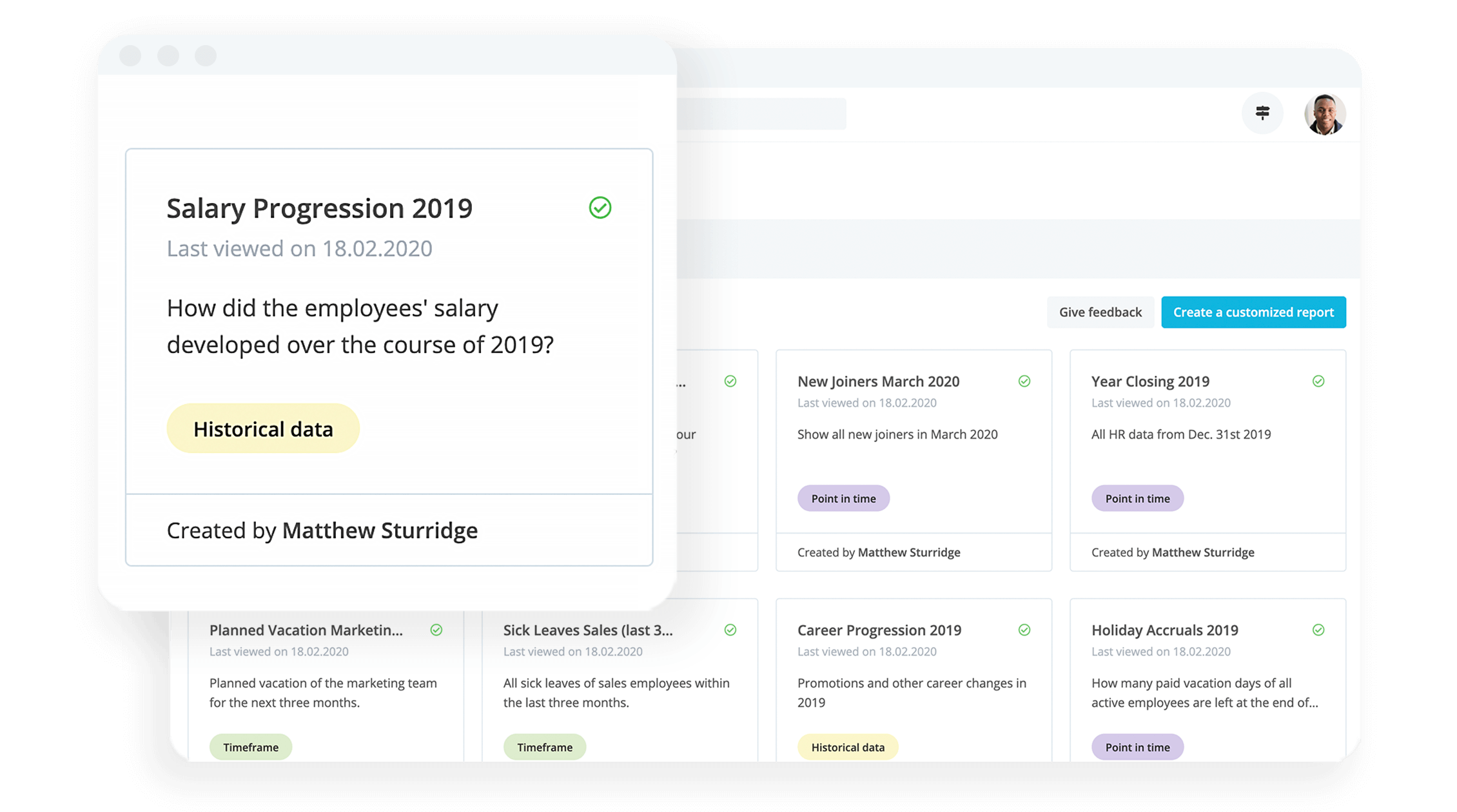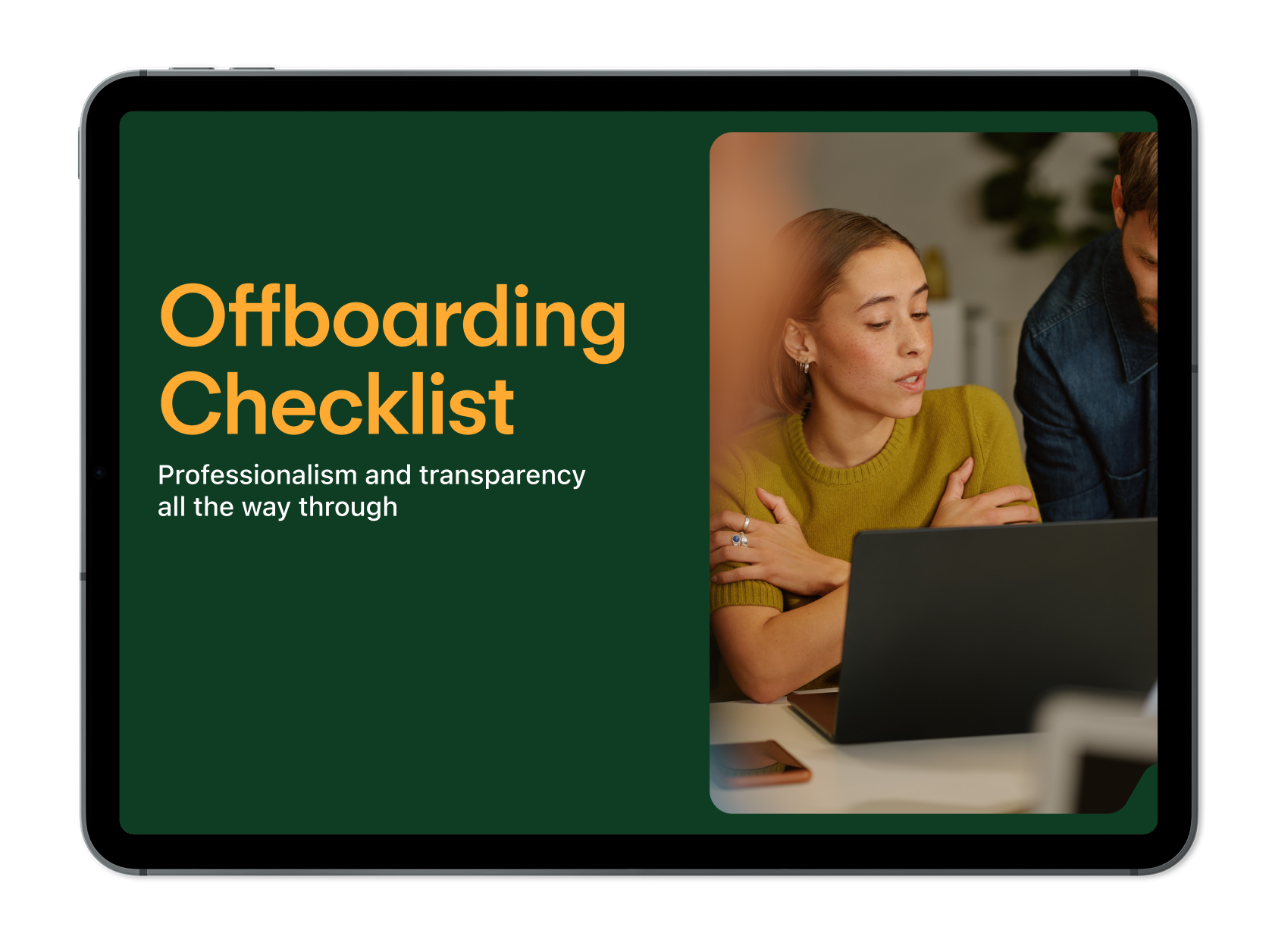13 Exit Interview Questions You Should Be Asking

Which questions is your organisation asking during exit interviews? Speaking with departing employees on their reasons for leaving can help identify areas within your business that need improvement. Below are several exit interview questions to help guide a productive conversation with departing employees.
Key Facts
Exit interviews are meetings with departing employees to collect feedback on their experience and determine what precisely made them leave.
HR representatives are best suited to conduct exit interviews because they can immediately act on the insight they gain.
Most exit interview questions are meant to start deeper discussions about potential workplace problems.
What Is an Exit Interview?
An exit interview is a discussion between a departing employee and an organisation representative during offboarding that dives into the employee's decision to leave.
Conducting these interviews gives the employee a chance to offer honest feedback on their experiences and identify areas that may have pushed them away.
Insights gained from exit interviews can be used to improve the organisation and better the workplace for all employees.
13 Critical Exit Interview Questions Worth Asking
Here are 13 questions that you can ask to help guide your exit interview in the most productive direction possible.
While the list isn’t exhaustive, each question is a good jumping-off point for a more in-depth discussion. Let’s begin…
1. Would You Consider Returning to the Company in the Future?
There’s fierce competition for top-quality candidates, so it’s essential to have retention strategies to help retain your top performers.
Asking this kind of question keeps the door open for the departing employee to return, which would provide you with the opportunity to re-hire a highly-trained professional already familiar with the company processes.
It also helps you identify certain internal factors that could change to help attract the best applicants to your business.
2. Are Any Company Policies Unclear?
Your company policies (including your HRM policies) set expectations for your employees and ensure consistent processes through every level of your business.
When these policies lack clarity, your workforce lacks direction, potentially leading to costly mistakes or dips in productivity.
Asking this question in an exit interview pinpoints vague guidelines, and further discussion can reveal specific areas where the confusion on policy was created.
For example, the employee could tell you about an occasion where a breach of policy wasn’t punished (especially relevant in cases of whistleblowing).
3. Did You Feel You Had the Resources and Support To Succeed?
This question can have a broad range of answers, but each is vital as feedback on the work environment you’ve created and as insight into the issues the organisation is facing.
Some employees may dislike the lack of remote working options, while others may complain about outdated equipment.
Learning about these problems within the interview is the first step to resolving them. It can help you rethink your org structure, ways of working and more.
4. What Could We Have Done Better?
A straightforward question about what departing employees view as company shortcomings can provide the most in-depth insight into certain issues.
People are less hesitant about giving honest feedback when they’re preparing to leave, so you could learn about problems you weren’t aware of before.
You can direct follow-up questions toward more specific areas, asking the former worker if they’re satisfied with their benefits package, pay or some other aspect of the job.
Stay On Track With Offboarding Tasks

Personio keeps all of your processes streamlined, visible, and actionable.
Show me more5. What is the Best/Worst Part of Your Job?
The answers to this question will differ depending on the employee you’re speaking with, but the interviewer will likely start noticing similarities over time.
You can use these themes to identify what your company does well and promote them as a reason for top-quality candidates to join your organisation.
They’re also useful in finding fla
ws within your operation that other questions may not have revealed. It may also influence your thinking when designing future roles.
6. What Traits Should Your Replacement Have?
A departing employee is leaving a role within your company that you’ll need to fill, and no one will understand that role better than them.
Asking this question can reveal skills req
uired for the newly opened position. Given that knowledge, you can write a more accurate job description and update employee training and development accordingly.
7. How Would You Describe Our Company Culture?
A company’s culture influences employee wellbeing, productivity and more.
Having departing employees describe the culture helps demonstrate how the culture is perceived compared to the environment you’d like to create.
Leverage the answer to this question to get a fresh look at your company. Additionally, consider resources that can help expand your thinking on corporate culture.
8. What Was Your Best/Worst Day On the Job?
This question is typically a measure of employee engagement.
It helps identify what aspects of your company made the departing employee feel successful and what made them feel unproductive or uncomfortable.
You can use this information to mitigate the traits that create those bad days while prompting the traits that make good ones.
9. Were Your Objectives Clear?
Most employees require clear milestones to understand how their work fits into or as part of the company’s larger goals.
A lack of clarity tends to make workforces less engaged with their tasks, leading to diminished quality and productivity.
Including this exit interview question can show whether your employees feel that their roles matter and allow you to course correct if they don’t.
Gain Instant Insights On All Your Talent

Personio’s HR software offers an HR analytics platform that helps craft custom reports, unique to your organization, that help identify trends and power decision-making from the very top. Learn more about it right now.
Reporting With Personio10. What Are You Looking Forward to at Your New Job?
If a departing employee leaves for a similar position at a competing business, that’s a sign that they felt something was missing at your organisation.
Asking this question can help you figure out what a competitor is offering that you’re not, whether that’s a higher salary or a better benefits package.
11. Do You Have Any Ideas on How to Improve Employee Morale?
Employees are more likely to talk about morale among themselves rather than bring company issues up with leadership for fear of reprisal.
However, workers will often have fewer reservations in an exit interview. This allows you to gather insight into the state of your workforce.
In addition, since your former employees are so close to the issue, they have a better foundation for coming up with creative solutions.
12. Would You Recommend Our Company to a Friend or Family Member?
Even if the departing employee was dissatisfied with certain aspects of their job, it doesn’t mean they disliked the company.
Asking a question like this during an exit interview helps determine whether the former employee thinks positively about the organisation.
If they do, then most of your workforce is likely to do so as well, but if they don’t, follow-up questions could help you identify a larger problem within your business.
13. Is There Anything Else You’d Like To Add?
No matter how comprehensive your exit interview is, it’s still possible that some issues weren’t addressed. You should open up space for employees to speak their mind.
Asking this question ensures that the departing employee has a chance to voice any concerns and signals that you still value the employee’s opinion even as they prepare to leave.
Tips for Conducting an Exit Interview
While questions are a large part of an exit interview, they’re not all that goes into it. Ensure the meeting runs as smoothly as possible by:
Asking an HR representative to lead it. One of the main responsibilities of the human resources department is to help ensure that employees can do their best work. Letting them conduct the exit interviews is usually more efficient because they’re best equipped to put the insight they gain from a departing employee into action.
Scheduling near the end of their two-week notice. Ideally, the exit interview should be one of the last things an employee does before they walk out the door. That way, they don’t feel pressured to give biassed answers because they still need certain documents signed or a reference given.
Letting them know the reason for the meeting. Communicate the purpose of the meeting before the employee shows up to give them time to prepare. An answer given on the spot might not have enough detail to follow up on. But if employees know about the meeting beforehand, they have time to consider their answers.
Remaining polite and not taking their leaving personally. No matter how negative the feedback an employee gives you in an exit interview, it’s important to remain cordial throughout. Conversation, not conflict, is crucial in getting the most actionable insights during this process.
Keeping them on file. There’s always a chance that the departing employee will return to their position, so keeping them on file can speed up the onboarding process. Additionally, informing them they’re still welcome at the company encourages a well-trained worker to return if a new position doesn’t work out.
Frequently Asked Questions About Exit Interview Questions
Why Do Exit Interviews Fail?
The biggest reason exit interviews fail is that they’re a lagging reaction to what may be an ongoing issue. If an employee leaves because of a specific problem, that problem is likely already big enough to affect most, if not all, of the workforce.
What Not To Say in an Exit Interview?
Don’t approach an interview with anything negative about the employee, and don’t get defensive if they have grievances about the workplace.
How Many Questions Should an Exit Interview Have?
An exit interview should not take longer than 30 to 60 minutes, which is enough time to ask about 10 questions. You may be able to ask for additional feedback if you’re within the allotted time.
Build Exit Interviews Into Your Offboarding Process
A fact of life for any organisation is that employees leave. What happens when an employee serves you their notice? Using Personio’s onboarding and offboarding feature, you can build streamlined and scalable processes for employee arrivals and departures.
Build templated processes and checklists that suit your company’s unique structure. Speak with an HR expert today to talk through how it works right now.
Disclaimer
We would like to inform you that the contents of our website (including any legal contributions) are for non-binding informational purposes only and does not in any way constitute legal advice. The content of this information cannot and is not intended to replace individual and binding legal advice from e.g. a lawyer that addresses your specific situation. In this respect, all information provided is without guarantee of correctness, completeness and up-to-dateness.

